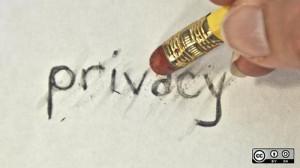 Introduction
Introduction
Around 15 years ago, many authors were working on books that discussed how the Internet was related to civil liberties. Back then, here were some of the ideas that seemed obvious at the time. First, daily life would occur, to some degree, on the Internet. Second, the Internet would change as a result of this shift. Privacy would largely disappear, as would the ability to communicate over the Internet without being monitored.
Instead, what would come to pass would be a system that was completely traceable that helped to support both commercialism and the state. This seemed highly likely since businesses were in a hurry to make as much money from the Internet as possible while the government was eager to protect its citizens from pornography, piracy, and now terrorism.
Alternate vision
However, something else could happen. It was possible that people would recognize what was beginning to happen and start to think about how the Internet’s technology was regulating them. Such thoughts could lead to thoughts of how to embed the protections of the Constitution in the infrastructure of the Internet.
The importance of this was laid in the idea that code was law, with code referring to Internet technology. As a result, if code was essentially the law of the land, then it was important to learn exactly what that code was as well as the control that it had over people.
Practical thinking
The idea, of course, is that the future is brighter if people look after their civil liberties in the present. It would keep citizens from suffering under another President Nixon, for example, while also making it easier to secure privacy and point out people prone to commit crimes ahead of time.
Thinking of it another way, back in 1999 it was already evident that there was going to be surveillance and monitoring of the Internet just as there was in the real world. However, the hope was that things would be better on the web, not simply in identifying people prone to criminal actions, but also in keeping from invading privacy.
No matter how trustworthy an FBI agent might be, he or she will always have the temptation to misuse information gleaned from overhearing a telephone call. However, a computer would only spy as much as it was programmed to, which meant the important element of technology was to figure out how to put limits on that wandering, both in the law and on the web.
We can’t just trust
The fact of the matter is that people can’t just be trusted to do the right thing simply because they are in charge. There is a need for companies to make technologies that ensure that information being collected is not being used in a way it shouldn’t. After all, one can get a New Jersey IT lawyer to look into cases of illegal acts involving Internet technology. Another way to think of it is as an audit, but of information, in order to make sure information is being collected the way it should. Why aren’t we doing this?
Image Credit: opensourceway
 Introduction
Introduction
